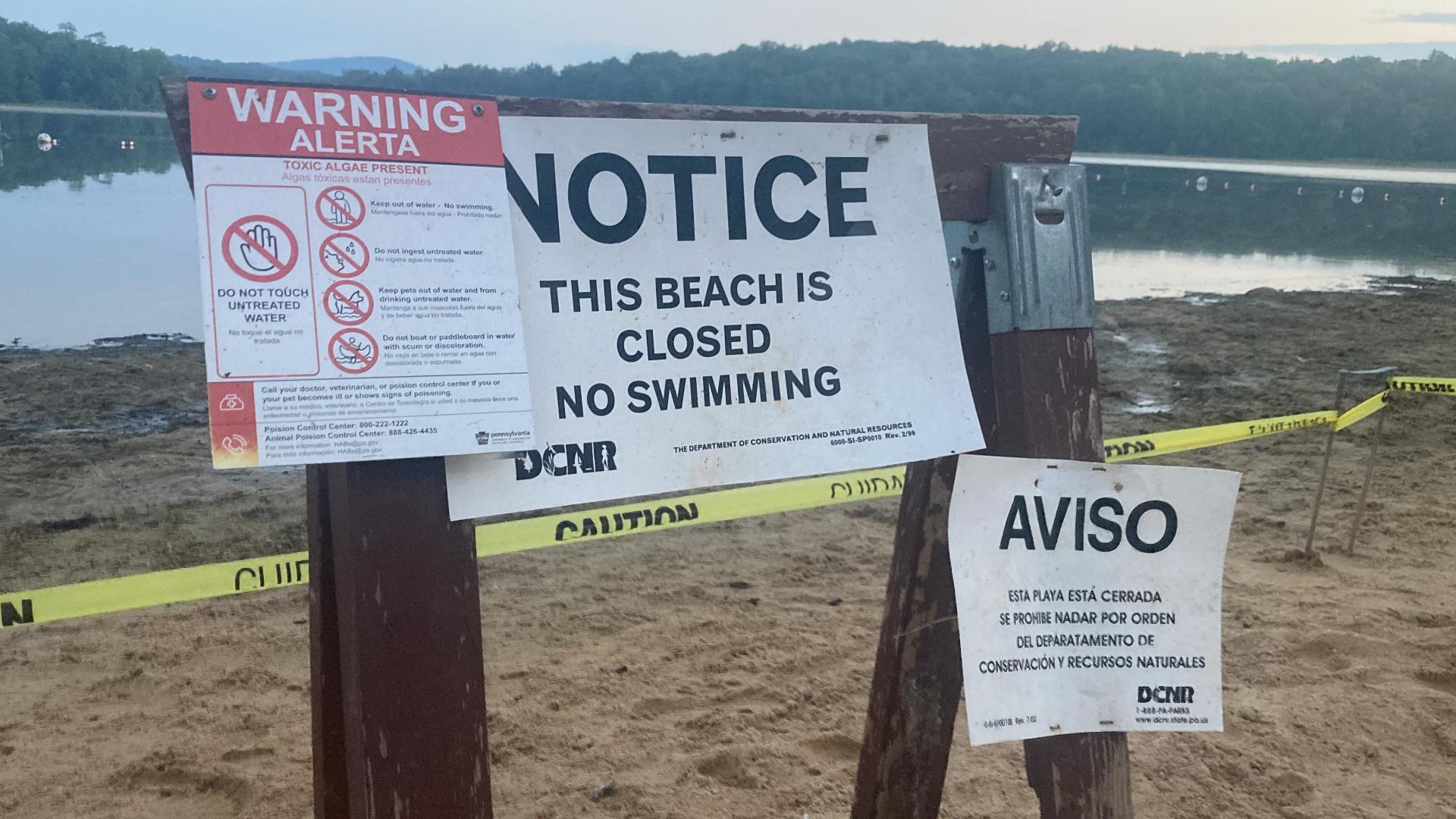YORK COUNTY, Pa. — Almost a week ago, a popular York County swimming spot was closed indefinitely due to harmful algae conditions.
According to Gifford Pinchot State Park, the DCNR has closed the Quaker Race Beach to swimming effective Thursday, July 4 because of algae conditions. The beach will remain closed to swimming as a precaution until acceptable water sample test results are gathered, according to the park.
Michael Plish, assistant park manager of Gifford Pinchot State Park told us, "The real problem with these harmful algae blooms is that the cyanobacteria produce toxins, and those toxins can be dangerous to people and animals."
If you're exposed to these algae, you may experience different symptoms. It could "be something as minor as a skin rash, but you could have more serious symptoms like irritation of the eyes and ears and nose. If you ingest the water, it could cause vomiting, diarrhea, abdominal pain,” Plish said.
Blooms need sunlight and nutrients to survive, according to DCNR. They can form at any time, but most often occur in late summer or early fall due to the warm, slow-moving waters that are rich in nutrients from sources such as fertilizer runoff and sediment buildup.
DCNR tests the water bi-weekly this time of year, and because of this, they were able to spot the high levels of cyanobacteria.
Dogs are most likely to become ill from cyanotoxins by drinking untreated water, swimming in lakes and ponds, eating algal scum or mats, and licking contaminated fur when grooming, DCNR said.
Other typical park activities on or near the lake--such as boating and fishing--are permitted, with a reminder to use safe water recreation practices that help protect yourself and your pets from harmful algae and other recreational water illnesses.
Encouraged practices include:
- Wash your hands after contact with untreated water.
- Shower or bathe people and pets immediately after participating in water-based recreation activities.
- Avoid swallowing and inhaling untreated water during recreational activities.
- Avoid contact with water that has foam, scum or discoloration.
- Seek and follow any waterbody advisories or closures.
The Department of Environmental Protection urges if you or your pet do start showing symptoms after coming in contact with contaminated water, call a doctor, veterinarian or a poison control center, whose numbers are below:
- Poison Control Center: 800-222-1222
- Animal Poison Control Center: 888-426-4435
Guests are reminded to stay up-to-date on water conditions before arriving at the state park.
For more information on harmful algae, click here.

